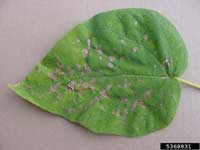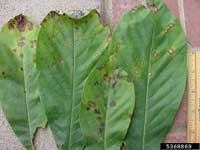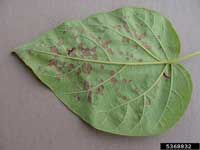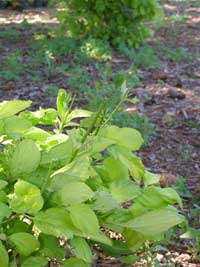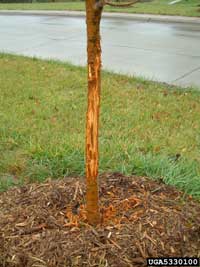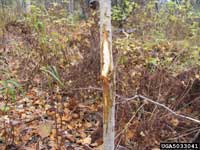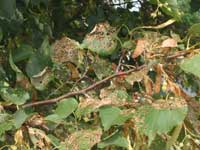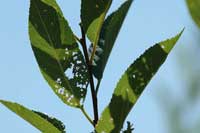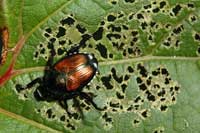Extension > Garden > Diagnose a problem > What's wrong with my plant? > Deciduous > Catalpa > Holes in leaves or parts of leaves missing
Catalpa > Leaves > Holes in leaves or parts of leaves missing
1 of 3
Leaf spot
Alternaria catalpae, Phyllosticta catalpae and others
- Brown to black, round or irregular-shaped leaf spots
- Leaves may appear ragged or shot holed from leaf spots that drop out
- In severe infections, leaves may turn yellow and curl
- More information on leaf spot
2 of 3
Deer feeding/antler rubbing
- Long lines of shredded or peeled off bark along main trunk up to 3 feet off the ground from antler rubbing.
- Feeding occurs from the ground up to 6 feet or slightly higher. Ragged edges, same as above, also if the bark is removed by a deer there will be no teeth marks.
- Wood may appear shiny or "polished".
- Leaves and small branches (less than 1 inch diameter) cut off with a rough or ragged edge (Not a clean cut!)
- Damage is common only on young trees, old trees have thick bark and wide stem so are not used by deer for antler rubbing.
- More information on Problems with deer
3 of 3
Japanese beetle
Papillia japonica
- Skeletonizes leaves, i.e. chews leaf tissue between the veins creating a lacelike appearance
- Attacks are common in sunny locations starting at the top of the tree and working down as they feed
- Adults are a metallic green; bronze wings; 5 white tufts of "hair" along their sides and two white tufts on the tip of abdomen
- Beetles present from late June through September
- More information on Japanese beetle



